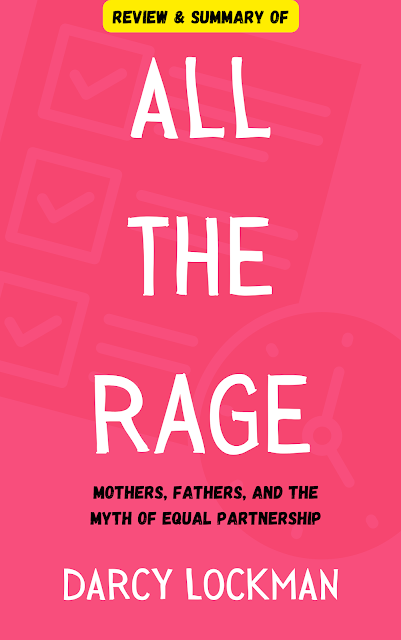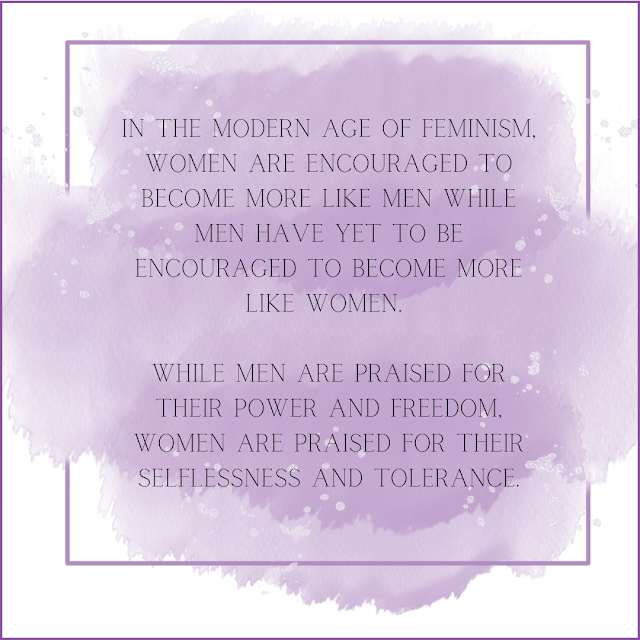Book Review: All The Rage by Darcy Lockman
I found this book through an article recommended by one of my professors who kindly shared the article knowing that a handful of the students in the class (myself included) were writing about motherhood for our blogging assignments in the class. The article included a link to another article written by the author of this book and I liked the article enough to immediately purchase the book referenced in it.
I think Darcy Lockman does an excellent job of distilling the information provided in her book with her own article that inspired my purchase, so I highly recommend you check that out ASAP just in case my review doesn’t do it justice.
Because honestly, I had some mixed feelings about this book.
The book talks in-depth about an issue currently plaguing the modern mother: the expectation to do and be it all while the modern father plops himself comfortably in front of a screen, entirely “oblivious” to the needs of his household. This premise resonated with me because I’ve definitely noticed a trend toward imbalanced household responsibilities in my own home as well as many of the families I know.
But why in an age where both men and women commonly identify as feminist (or at the very least believe in the equality of the sexes, even if they don’t call themselves feminist) are women still doing so much more than men?
Why are women working full-time jobs and still taking on almost all of the household and childcare labor at home?
In All the Rage, Darcy Lockman sorts through the science offered to answer these questions, and ultimately concludes that patriarchy is to blame for this inequality.
In the modern age of feminism, women were encouraged to become more like men—who are raised to be more assertive and independent—but men have yet to be encouraged to become more like women—who were raised to be more altruistic, caring, and tolerant. And so the sexism inherent in our society perpetuates.
Until we take away the negative stigma men face when they exhibit more “feminine” characteristics, men will continue to do less around the house simply because they are rewarded for doing so. They do what they want when they want it and won’t be told otherwise. Then, society reinforces their agentic behavior. Men are praised for their power and freedom; women are praised for their selflessness.
In other words, this inequality is not inherent in our biology (as is commonly thought) but a product of our patriarchal society and the unrealistic expectations and assumptions it shoves down the throats of its citizens from a very early age.
Basically, according to the book, to beat this inequality requires a commitment of both parties to shirk the toxic beliefs embedded within our society about what makes a “man” and a “woman" and forge together a new idea toward a more equal future.
It’s certainly not an easy path to take, but significant change is rarely easy.
Personally, though, I felt like this book puts too much pressure on women to take more responsibility for their own equality.
Throughout the book, Lockman calls out women for their tolerance of sexism or even accuses them of actively, consciously participating in it. Now, I’m sure it’s true that many women have inadvertently “drank the Kool-aid” of the patriarchy and subconsciously (or consciously) their actions (and inactions) in their lives may reflect this toxic ingestion.
However, to put the blame and the responsibility of fixing this problem back on women when women are already doing too much just seems to add to the problem of inequality to me.
I’m aware that my tolerance of my husband’s lack of effort when it comes to the duties of running a household doesn’t help fix the problem. But constantly picking a fight with him when I’m already mentally, emotionally, and physically taxed from the five billion other things I have going on just doesn’t seem like a reasonable road to success.
I shouldn’t be demonized for seeking harmony over constant conflict. Women get enough backlash from society as is.
Overall, though, the book served as a validation to the experiences of inequality in my marriage and motherhood. I felt less alone after reading this book—and motivated to tackle the patriarchal biases in my household (much to my husband’s displeasure).
That being said, I think it’s also important to cultivate a mindset that allows me to give myself grace for the days I simply don’t have the energy to fight. The patriarchy may live to see another day, but well, so will I.
And some days, that’s just how it needs to be.









.png)













0 comments